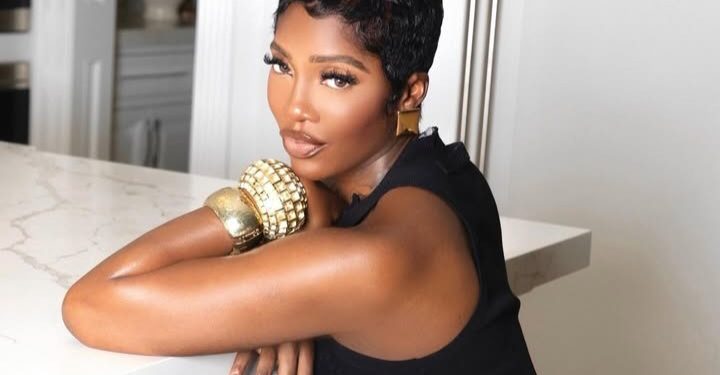Award-winning Afrobeats queen Tiwa Savage has taken a deep dive into her early music journey, revealing that her now-iconic sexy persona was never part of her natural identity, but the result of a deliberate rebranding effort by her ex-husband and former manager, Tunji “Teebillz” Balogun.
Speaking on the latest episode of the Afrobeats Intelligence podcast hosted by music journalist Joey Akan, Savage shared candid details about her transformation from a modest, tomboyish songwriter in Los Angeles to a glamorous sex symbol in Nigeria’s music scene.
“The sexiness in my 2024 single ‘Wanted’ music video felt groundbreaking at that time. Because I just got married and there’s a lot of press saying, ‘She’s not going to be desirable anymore. She’s finished. Her time is gone. There are new people on the scene.’ So, I was just like, let me do something crazy,” Tiwa said, recalling a bold moment in her career.
She continued: “That was me being rebellious. I was like, Oh! You guys think I’m not sexy anymore? To be honest, that wasn’t the aim, to just try to be sexy. Because naturally, I’m not. Naturally, I’m a tomboy.”
The Somebody’s Son crooner recounted that it was Teebillz who saw a market gap for a bold, fashion-forward female artiste and encouraged her to adopt a new image.
“But again, TJ [Tunji Balogun] saw that there was a gap in the market and he was just like, you’ve to lose weight, you’ve to go to the gym, you’ve to start waxing your eyebrows. You’ve to start wearing wigs. He literally changed my whole appearance. I was not like that in L.A. when he met me,” she revealed.
Reflecting on her humble beginnings, Tiwa said: “I used to be a songwriter in the studio wearing baggy jeans and t-shirt. And he literally changed that. I don’t think that he thought there was going to be a backlash. He was just like, let’s give them the African Rihanna or Beyoncé. I was like, okay, let’s go ahead.”
But the rebrand came with its own set of challenges. On returning to Nigeria, her daring fashion choices sparked backlash and even censorship. “My fashion sense attracted criticism. Then, I ran back to L.A. I was really bad. I would go to shows and I would be waiting backstage and they wouldn’t call me because maybe the governor’s wife had said I can’t come up or they’d say, make sure you don’t wear any of those your skimpy dresses. I’m not making this up,” she said.
Tiwa revealed that her music video ‘Love Me’ was even banned from TV at a point, and the industry rejection nearly broke her spirit. “I was discouraged. I remembered Bizzle called me and told me ladies were loving me, so I came back to Nigeria,” she said.
She also recalled how she was turned down by major record labels at the time. “I’ve told the story where I went to all the labels and they all said no, Storm Records, Mo’Hits, Banky W’s EME, everyone.”
Despite the rejections and criticisms, Tiwa Savage pushed through, rising to become one of Africa’s most celebrated female artists. Her story remains a powerful testament to resilience, reinvention, and the unspoken struggles behind the scenes in the music industry.













